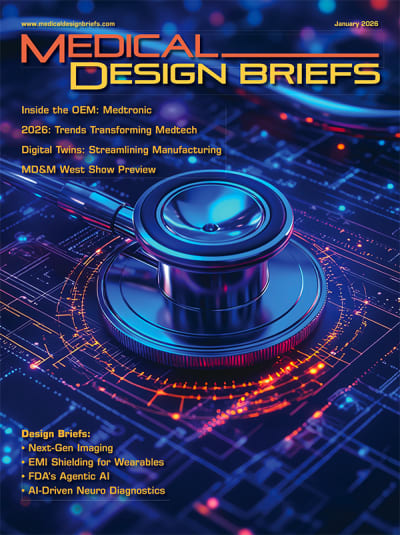
AI is poised to make a major impact on the medtech market by enhancing precision in diagnostics, personalizing treatment plans, and streamlining manufacturing processes. Because AI has the ability to enable more efficient data analysis, it leads to faster innovation cycles and improved patient outcomes. Moreover, AI-driven automation in manufacturing and quality control has the potential to significantly reduce costs, increase production efficiency, and ensure higher quality medical devices and solutions.
According to a recent report from analytics firm Clarivate, AI has emerged as a “transformative force” within the global medical technology arena, reshaping practices across vital medical fields like endoscopy and diagnostic imaging.
As ongoing research unveils new possibilities, the scope, and applications of AI in medtech continue to expand, promising heightened precision, efficacy, and patient outcomes.
“In recent years, we’ve witnessed remarkable advancements in AI, revolutionizing how we diagnose, treat, and manage patients. However, policies and perspectives vary worldwide and are influenced by dynamic societal, political, and ethical considerations. So, while AI holds a lot of promise in medtech, navigating this space will be an exercise of caution,” says April Chan-Tsui, director, product operations for Clarivate Medtech Insights.
The report notes that the integration of AI technologies in medtech requires stringent validation processes to meet regulatory standards and ensure reliability and safety in clinical settings. Collaborative efforts between policymakers, healthcare professionals, and technology developers are critical to foster responsible innovation and the ethical deployment of AI in advancing patient care.
Although AI offers the promises of revolutionizing many segments of the industry, it also faces a few hurdles in terms of adoption.
“Regulatory frameworks may potentially deter the growth of AI in medtech. The lengthy and costly process of AI development could extend approval timelines and inflate the average selling price (ASP) of products. Without proper reimbursement strategies, these costs could spill over to patients or payers, leading to reduced adoption/penetration in smaller entities or financially restricted areas,” notes the report.
The report finds that local market variations in regulation of AI will make it challenging for manufacturers to launch/ distribute AI-incorporated products across the globe. The deployment of AI in major healthcare systems poses cybersecurity concerns, especially in regions with ambiguous intellectual property laws or subpar cyber infrastructure to support heightened data security.
Sherrie Trigg
Editor and Director of Medical Content
To access the full report, go here .



